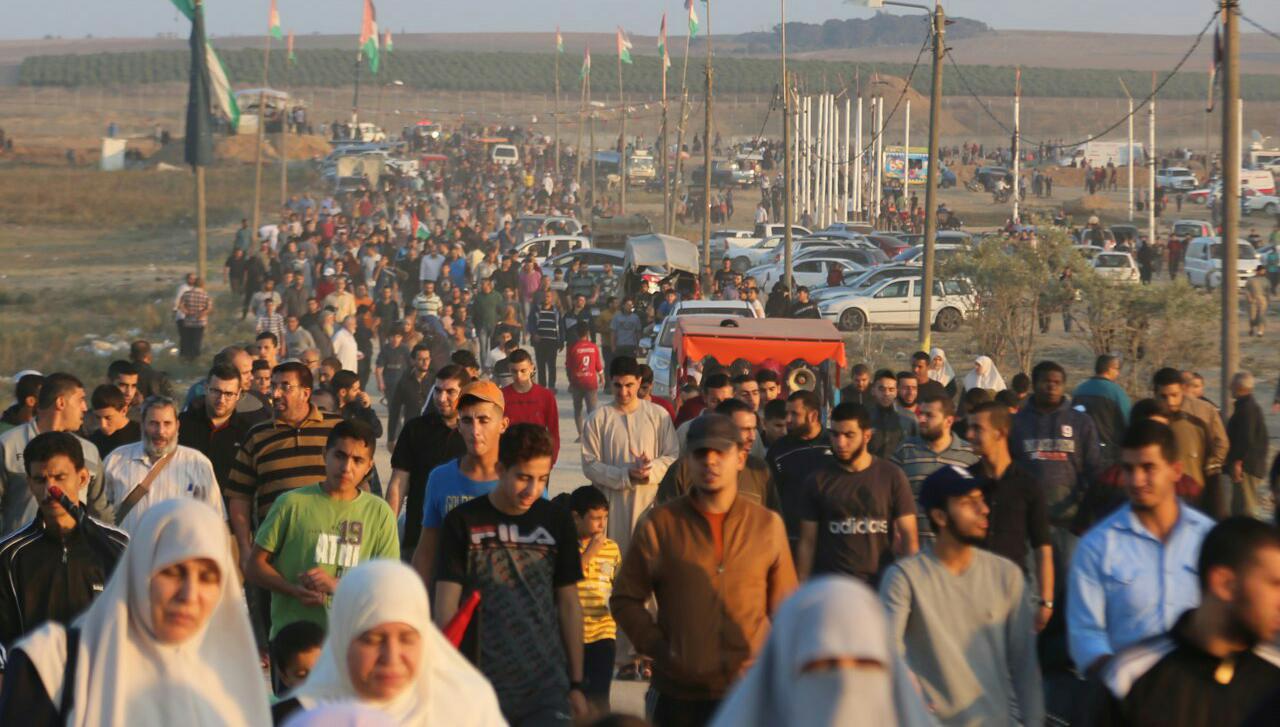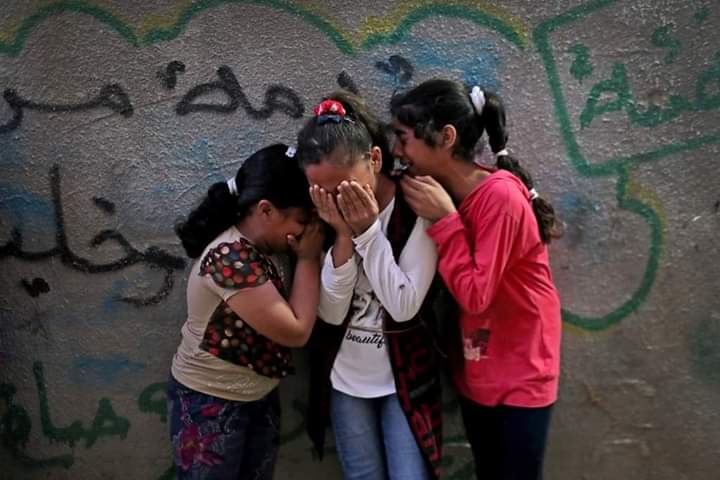Tag: Gaza
-
Mosques, churches, protests: Gaza on the Balfour Declaration’s 102nd anniversary
On the 102nd anniversary of the Balfour Declaration, churches rang bells and mosques called for prayer at the same time, while tens of thousands of Palestinians entered the buffer zone this Friday between the besieged Gaza Strip and Israel in the massive weekly Great March of Return protest.
-
Slain Gaza protester: father, husband, brother, and “a Palestinian who dreamed of liberation”
Gazan journalist speaks with Alaa Nizar Hamdan’s wife and family the day after he was shot and killed by Israeli forces in the Great March of Return in Gaza.
-
On the 71st week of the Great March of Return, the world forgets while Gazans remember
August 25, 2019 | International Solidarity Movement | Gaza, occupied Palestine Eleven consecutive weeks of protests in Hong Kong have captured the focus of online commentators, heads of state, and global media. In France, 39 weeks of protests by the Yellow Vests movement continues to garner widespread interest. In the US, Occupy Wall Street is…



